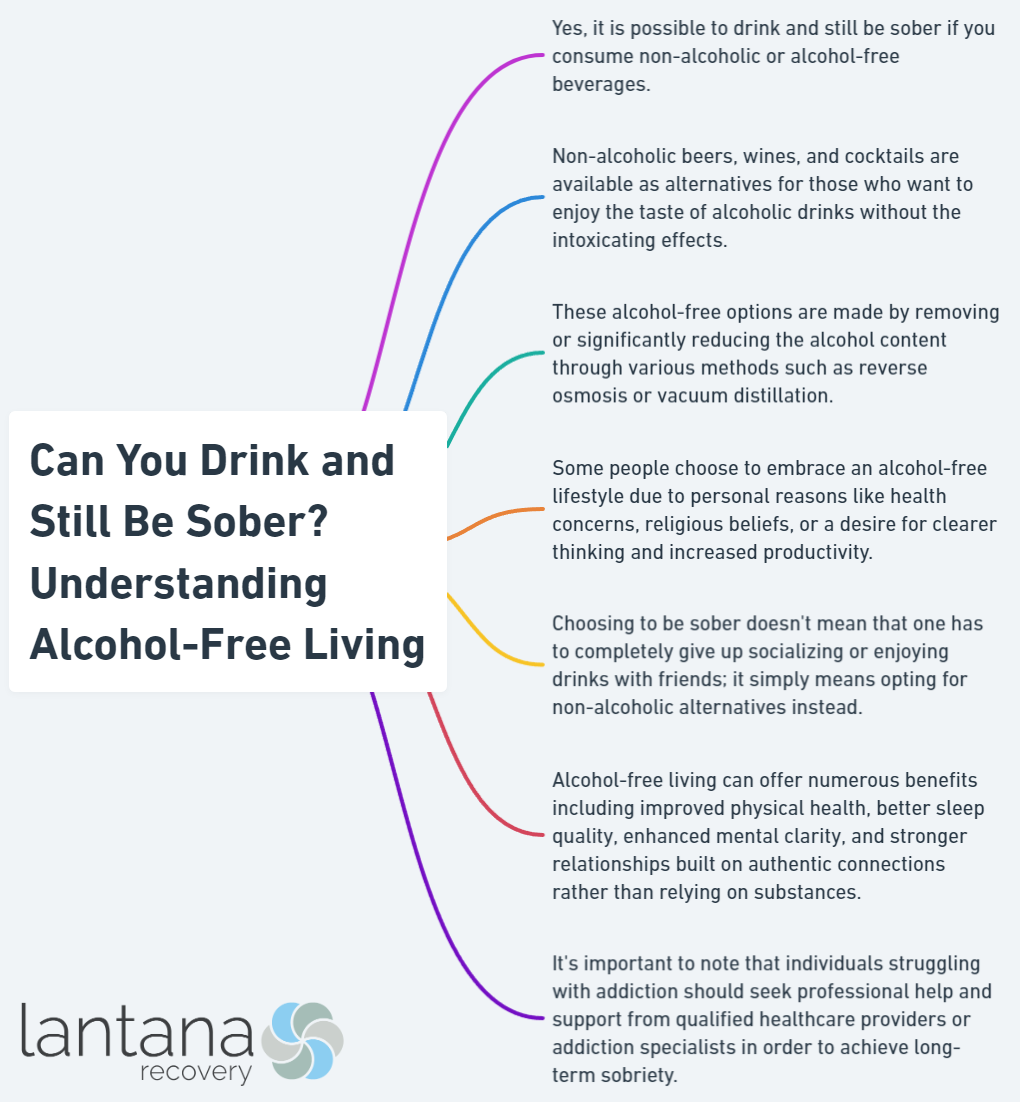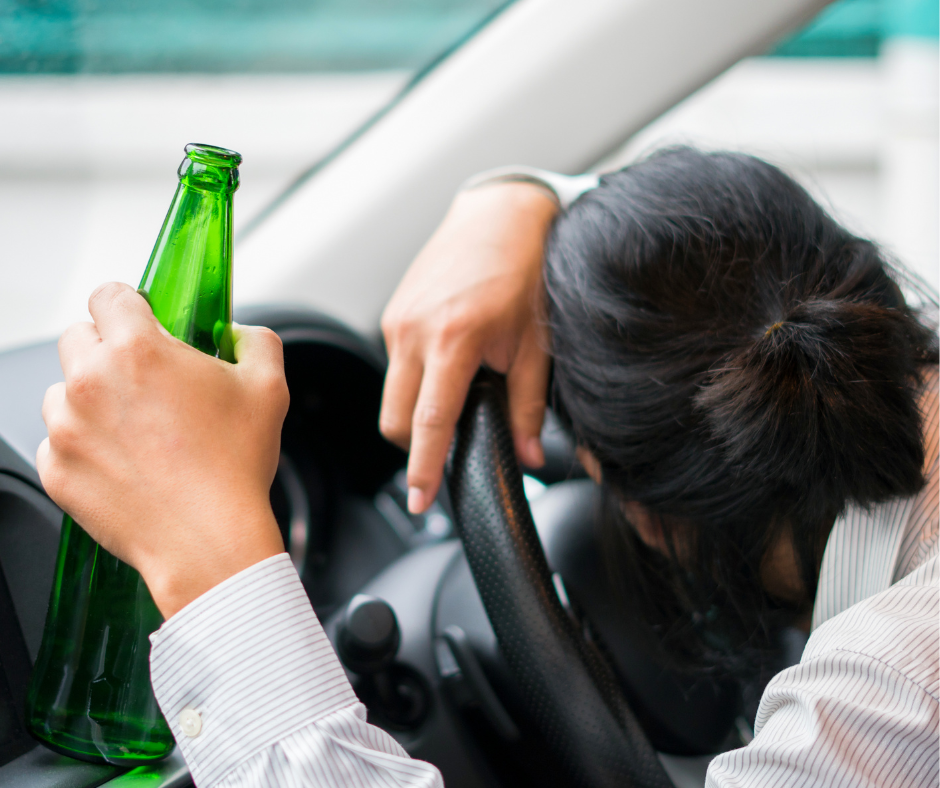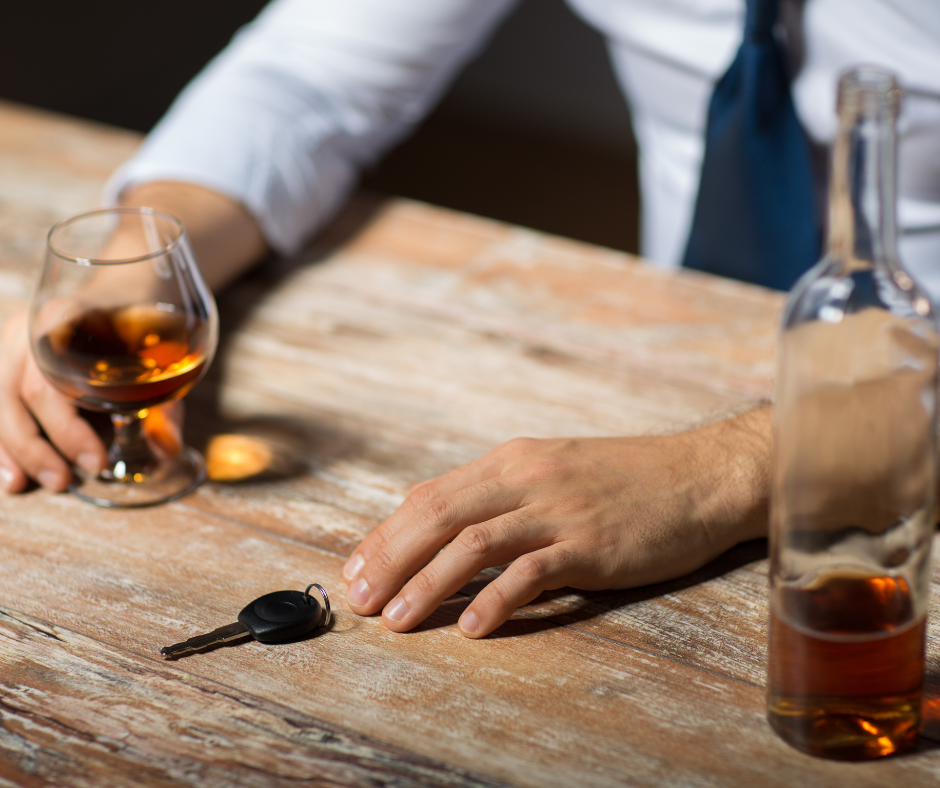Are you on the path to a sober lifestyle and wondering, “can you drink and still be sober?” Join us as we dive into the world of casual drinking, sobriety, and the challenges and rewards that come with living a life free from the grip of alcohol addiction. We’ll take you on a journey through the sober spectrum, discuss strategies for maintaining sobriety, and explore the benefits of living a healthier, more fulfilling life. So sit back, relax, and let’s embark on this transformational journey together.
Short Summary
- Navigate the fine line between casual drinking and sobriety by understanding your own relationship with alcohol.
- Create a plan to stay sober, build a support system, and practice healthy coping mechanisms for improved well-being.
- Enjoy the benefits of sobriety such as better physical health, increased clarity & confidence, and more opportunities for personal growth!
The Fine Line Between Casual Drinking and Sobriety
Navigating the world of sobriety can be challenging, especially when it comes to distinguishing casual drinking from alcohol abuse. For some, an occasional drink may seem harmless, while for others, it could be a slippery slope back into addiction. So, can you really drink alcohol and still lead a sober life?
The answer is not black and white. While some individuals may be able to enjoy a drink without jeopardizing their sobriety, others may find even a single drink to be a trigger for relapse. The key lies in understanding one’s own relationship with alcohol, recognizing the potential risks, and making informed decisions that prioritize health and well-being.

Defining Casual Drinking
Casual drinking, also known as social drinking, refers to the responsible and moderate consumption of alcohol, usually in small amounts on rare occasions. This is in stark contrast to binge drinking or alcohol abuse, which involves excessive and frequent alcohol consumption.
In essence, a sober person abstains from alcohol altogether, while a casual drinker enjoys an occasional drink without losing control over their alcohol intake.

The Sober Spectrum
“Long-term recovery involves processes of sobering, maintaining sobriety, and recovery” (Exploring the process involved in long-term recovery, Gubi & Mardsen-Hughes, 2012.) Sobriety, by definition, involves complete abstinence from alcohol, which can be a powerful way to maintain self-control and keep away from excessive drinking. However, there is a spectrum of sobriety that ranges from complete abstinence to moderation management. This spectrum acknowledges that different individuals may have varying capacities to control their alcohol consumption and that there is no one-size-fits-all approach to recovery.
Moderation Management (MM) offers guidelines for those looking to enjoy alcohol in a controlled manner, suggesting limits on the number of drinks consumed per sitting and per week. Though MM may work for some, others may find that complete abstinence is the most effective path to a successful recovery. It’s essential to consider personal circumstances, history of alcohol consumption, and access to support services when choosing the right approach to sobriety.
Alcohol Addiction and Alcohol Use Disorder

Alcohol addiction and alcohol use disorder (AUD) are often mentioned interchangeably, but they are not the same thing. While both involve a problematic relationship with alcohol, it’s important to understand the differences between the two to seek appropriate treatment and support from experts at an institution like Lantana Recovery.
Alcohol addiction refers to a dependence on alcohol, characterized by an uncontrollable urge to drink, an inability to stop drinking, and continued drinking despite negative outcomes. On the other hand, AUD is a medical condition that ranges from mild to severe, characterized by an impaired ability to stop or control alcohol use, even if it leads to adverse consequences.
Recognizing the distinction between the two is crucial for understanding the appropriate course of action for recovery.
Recognizing Alcohol Addiction
Signs and symptoms of alcohol addiction include impaired judgment, inappropriate behavior, aggression, mood changes, depression, anxiety, poor social functioning, problems driving or operating machinery, a drinking problem, binge drinking, and blacking out.
Alcoholism is a condition in which an individual has become dependent on alcohol. Despite any negative outcomes, they are unable to stop drinking. They engage in compulsive drinking and are unable to take control of the habit, despite the fact that it might hurt them or those around them. Unfortunately, this addiction is hard to break.
Understanding Alcohol Use Disorder
Alcohol use disorder is a medical diagnosis based on a set of criteria, while alcohol addiction is a term used to describe a person’s dependence on alcohol. Alcohol addiction is not a medical diagnosis but is often used to describe someone who is struggling to control their drinking and is dependent on alcohol.
Therefore, the key difference between the two lies in the nature of their definition and diagnosis, with AUD being a clinically diagnosed condition, while alcohol addiction is a more general term for dependence on alcohol.
Can You Have Just One Drink and Stay Sober?

The idea of having just one drink and maintaining sobriety is a debated topic. The potential outcomes of having one-drink break sobriety vary greatly depending on individual circumstances, and it’s essential to consider the risks and potential consequences.
For some, one drink could result in a full-blown episode of binge drinking, while for others, it could be seen as a minor “slip.” Ultimately, the decision to have just one drink depends on an individual’s situation, self-awareness, and understanding of their relationship with alcohol.
It’s important to remember that too much alcohol can weaken resolve and impair decision-making, making it hard to stay within one’s limit. You should know how much to drink to stay sober while driving or refuse drinks altogether if you can’t handle it.
Risks for Recovering Alcoholics
For recovering alcoholics, having even one drink can pose significant risks. The potential of returning to active alcohol abuse is a real concern for a recovering alcoholic, as well as the risk of overdosing since the person’s body is no longer accustomed to the amount of alcohol they drank while they were addicted.
Moreover, consuming non-alcoholic drinks that resemble or smell alcoholic beverages can also trigger cravings or relapse. Therefore, it’s essential for recovering alcoholics to be aware of these risks and make informed decisions about their alcohol consumption.
Moderation vs. Abstinence
When it comes to sobriety, moderation, and abstinence are two different approaches that individuals can choose to adopt. Moderation allows you to enjoy alcohol in a responsible manner, while abstinence offers the greatest health benefits, steering clear of the potential risks related to drinking.
While some individuals may find success with moderation management, others might find complete abstinence to be the most effective path to a successful recovery. It’s essential to evaluate one’s own situation, personal history, and support system when choosing the right approach to sobriety.
Strategies for Maintaining Sobriety

Maintaining sobriety is an ongoing process that requires dedication, self-awareness, and the adoption of healthy coping mechanisms. Whether you choose to practice complete abstinence or moderation management, the key to success lies in having a solid plan in place, a strong support system, and a commitment to prioritizing personal well-being.
It’s important to remember that sobriety is a personal journey, and what works for one person may not necessarily work for another. Be open to exploring various strategies, seeking professional help, and embracing the support of friends, family, and the recovery community.
The road to sobriety may not always be easy, but the rewards are well worth the effort.
Building a Support System
Having a strong support system in place is crucial for maintaining sobriety. Emotional and practical support from friends, family, and professionals can help reduce stress and improve overall mental health. Building a support system may involve attending support groups, talking to a therapist or counselor, and connecting with friends and family.
By surrounding yourself with people who understand your journey and can offer encouragement and guidance, you set yourself up for success in maintaining a sober lifestyle.
Developing Healthy Coping Mechanisms
Developing healthy coping mechanisms can help you deal with stress and emotional triggers without resorting to alcohol. Establishing and maintaining boundaries, practicing relaxation strategies such as deep breathing, engaging in regular exercise, making connections, accepting change, and seeking support from friends or professionals like those at Lantana, Columbia, SC can all contribute to a healthier and more balanced life.
By adopting these coping strategies, you’ll be better equipped to navigate the challenges of life while maintaining your sobriety.
Non-Alcoholic Alternatives for a Sober Lifestyle

For those looking to enjoy social situations without consuming alcohol, there are plenty of non-alcoholic alternatives available. From alcohol-free wines and beers to creative mocktails, there’s no shortage of options for those who want to maintain a sober lifestyle while still enjoying the social aspects of drinking.
Embracing non-alcoholic alternatives can help individuals feel more confident in social situations where alcohol is present, allowing them to enjoy the company of others without compromising their sobriety. By exploring these options, you can continue to lead a fulfilling and engaging life while staying true to your commitment to sobriety.
Mocktails and Alcohol-Free Drinks
Cocktails are a fantastic way to enjoy the look and taste of cocktails without alcohol. These non-alcoholic beverages come in a variety of flavors and can be easily made at home or ordered at a bar or restaurant.
In addition to mocktails, there are numerous alcohol-free drinks available, such as non-alcoholic wines, beers, and spirits. These options provide a refreshing way to enjoy social situations without compromising your sobriety.
Navigating Social Situations
Handling social situations where alcohol is present can be challenging for those maintaining a sober lifestyle. To successfully navigate these situations, consider having a plan in place, such as always having a non-alcoholic beverage in hand or having a designated driver.
It’s also essential to be mindful of your emotional state and to hone your communication skills to engage in meaningful conversations without the need for alcohol. By employing these strategies, you can confidently enjoy social events while staying true to your commitment to sobriety.
The Benefits of Sobriety

Living a sober life comes with numerous benefits that can improve your overall well-being and quality of life. From enhanced sleep and sharper memory to more liberated time and saved money, the positive aspects of sobriety are truly remarkable, especially when considering the negative consequences of substance abuse.
Moreover, sobriety can lead to stronger relationships, increased self-esteem, and an overall heightened sense of accomplishment, as you overcome the challenges associated with alcohol addiction and embark on a journey of personal growth. By choosing a sober lifestyle, you open yourself up to a world of possibilities and the opportunity to lead a healthier, more fulfilling life.
Physical Health Benefits
Reducing or eliminating alcohol consumption can have a significant impact on your physical health. Some of the benefits include reduced risk of certain cancers, improved liver function, better sleep, improved immune system function, and increased energy levels.
By choosing to prioritize your health and well-being, you set yourself up for a more vibrant and energetic life, free from the constraints of alcohol addiction. Alcohol rehab can be an essential step in achieving this goal.
Emotional and Mental Health Benefits
Sobriety offers a myriad of emotional and mental health benefits as well, such as increased mental clarity, reduced symptoms of mental illness, improved memory, boosted confidence, and better interpersonal relationships. Embracing sobriety can also open up new opportunities for personal growth, self-discovery, a change in personality, and a greater sense of accomplishment, as you overcome the challenges associated with addiction and create a more balanced, fulfilling life.
Making the decision to become sober is a powerful step towards improving your overall well-being.
Summary
In conclusion, navigating the world of sobriety and casual drinking can be a complex and nuanced journey. It’s essential to understand your relationship with alcohol, recognize potential risks, and make informed decisions that prioritize your health and well-being. Whether you choose to practice complete abstinence, moderation management, or explore non-alcoholic alternatives, remember that the road to sobriety is a personal journey, and the rewards of living a healthier, more fulfilling life are well worth the effort. Stay strong, stay committed, and embrace the transformative power of sobriety.
Frequently Asked Questions
Can you be sober and still have a drink?
It is possible to have one drink while in recovery, but it is an exception and very rare. For the majority of people, drinking alcohol while in recovery will lead to relapse, so it’s best to abstain from alcohol completely when sober.
Is being sober the same as not drinking?
Being sober involves more than simply not drinking – it’s about discovering a new sense of hope and purpose in life, as well as engaging in new activities and forming connections with people who understand and share your outlook.
These activities can range from attending support groups to engaging in hobbies and activities that bring joy and fulfillment. It’s also about learning to cope with life’s challenges without relying on alcohol or other substances. By taking the time to focus on yourself and your own well-being.
Can you drink alcohol and not be an alcoholic?
Yes, you can drink alcohol and not be an alcoholic – the difference lies in problem drinking, which is using alcohol in a way that can harm your physical and mental health.
Problem drinking is not the same as alcoholism, but it can lead to it if not addressed. It is important to recognize the signs of problem drinking and take steps to address it before it becomes a more serious issue.
What are some strategies for maintaining sobriety?
Developing a plan and support system, as well as taking time for self-care, are key strategies to sustaining sobriety. Staying focused and motivated is essential for success.
What are some non-alcoholic alternatives for social situations?
Enjoy social situations while staying sober with tasty mocktails, non-alcoholic wines, beers, and spirits – the perfect alternatives to alcoholic beverages.
These drinks are a great way to stay social without the worry of overindulging. They are also a great way to show off your mixology skills and impress your friends.









